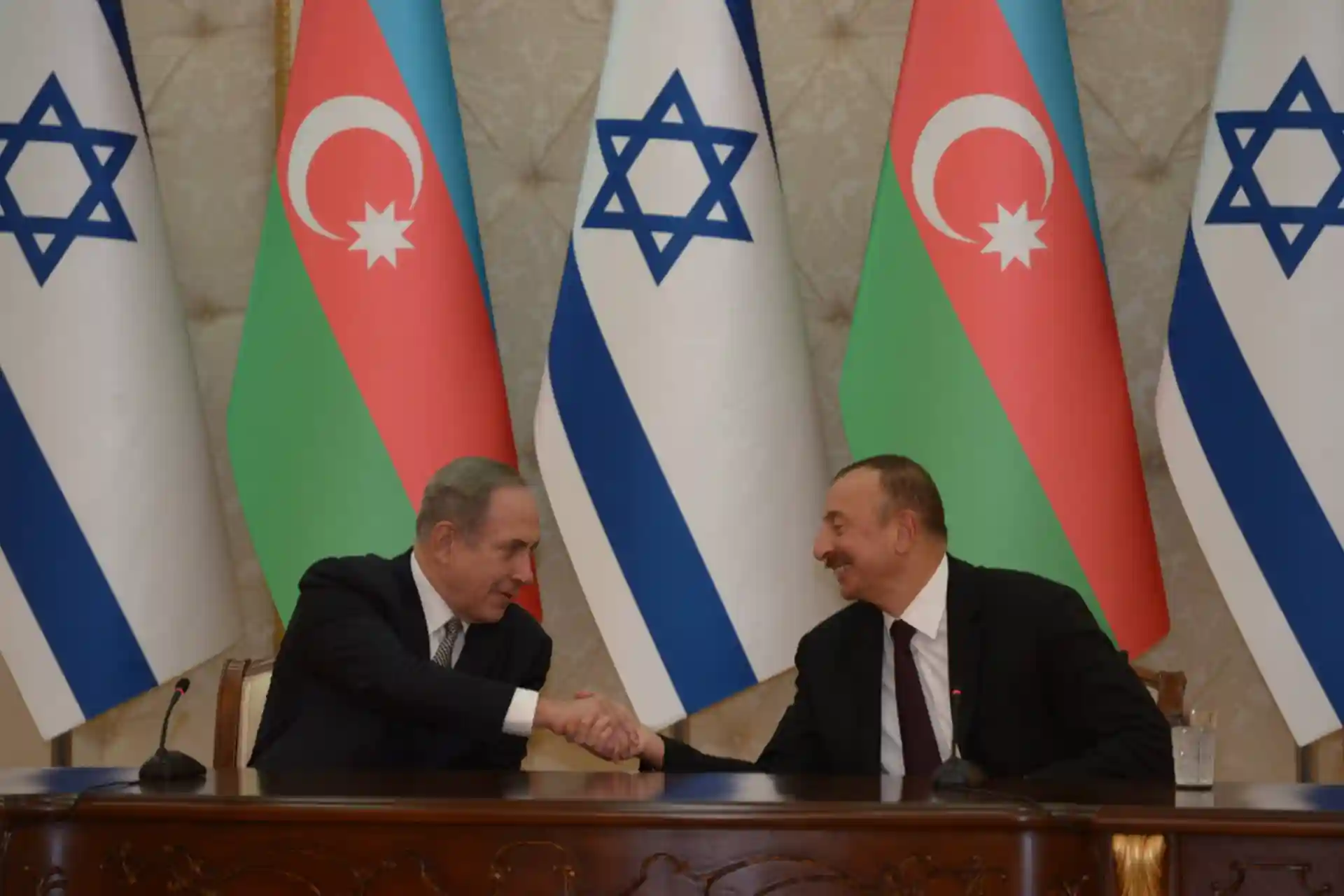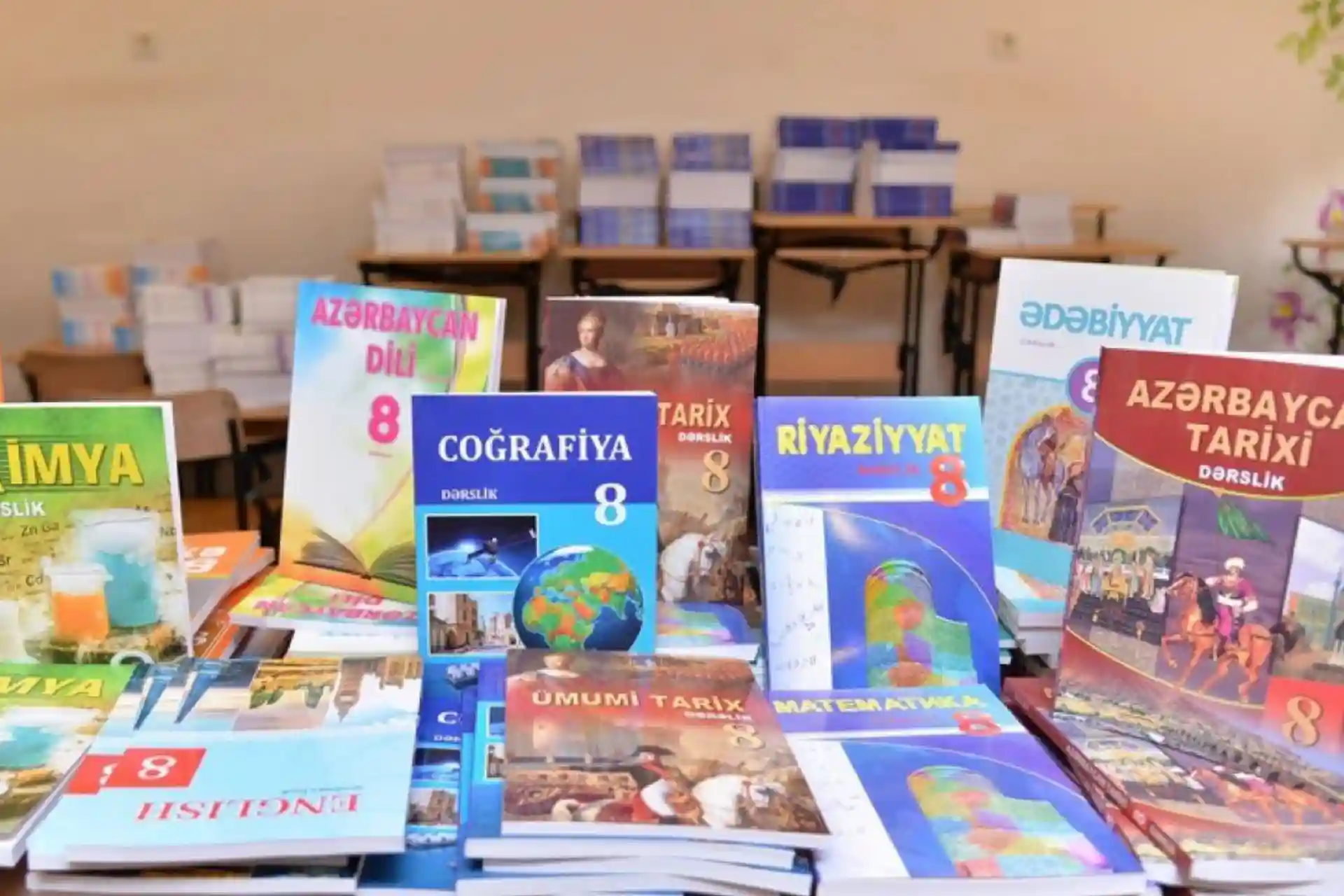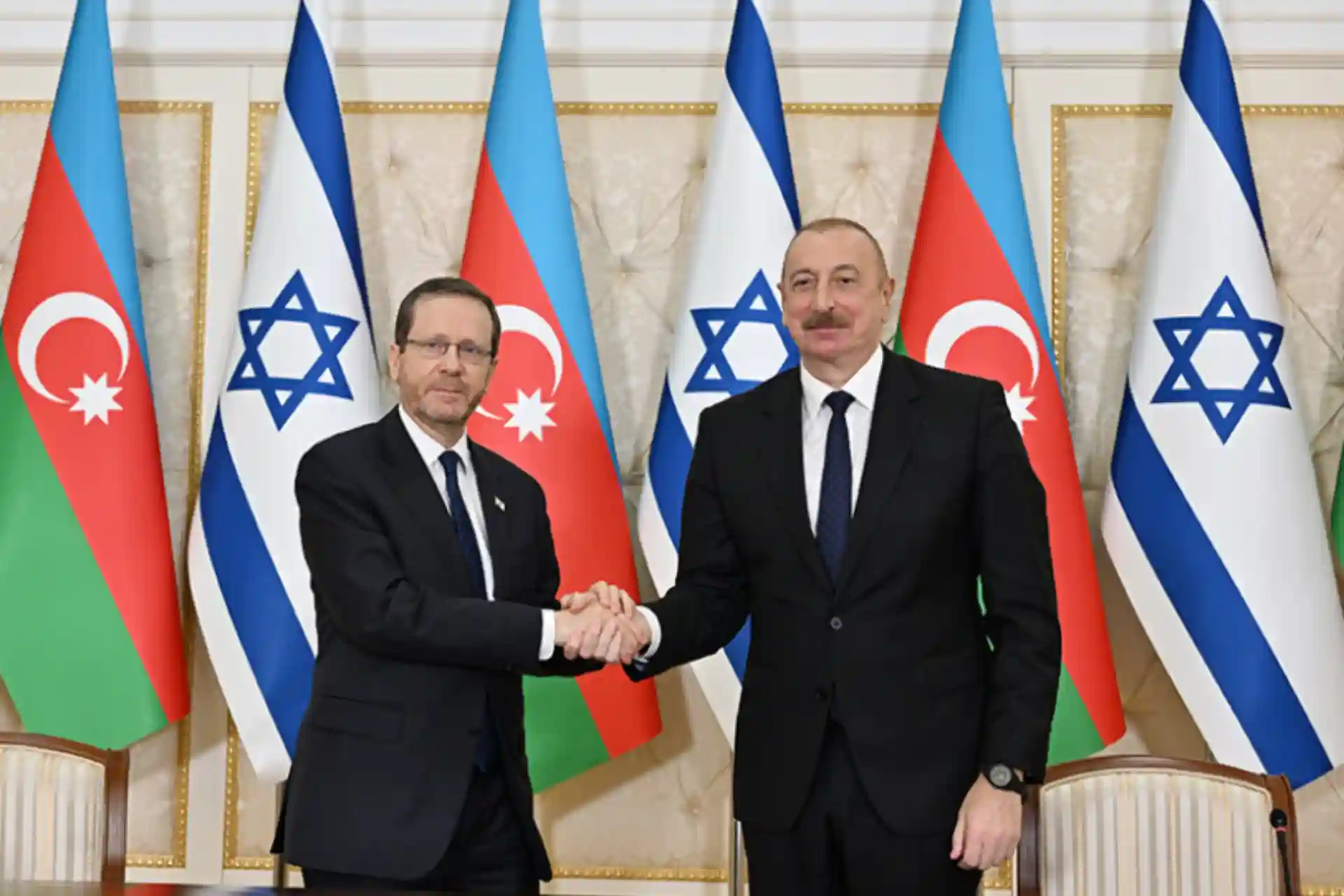28.04.2025 18:19
461
A new stage in the alliance between Baku and Israel: Azerbaijan wants to join the Abraham Accords
Sanjar Said:
A new stage in the alliance between Baku and Israel: Azerbaijan wants to join the Abraham Accords
Azerbaijan's close relations with Israel are no secret. Since the 1990s, a strategic "energy-for-arms" partnership has formed the basis of these ties.
Baku, together with Kazakhstan, supplies more than 60 percent of Tel Aviv's oil needs. This figure has increased since October 7, 2023, due to Israel's brutal military actions in Gaza and Lebanon.
In return, Israel supplies Azerbaijan with modern weapons, which played a key role in Baku's victories over Armenia in the 2020 and 2023 wars.
Between 2016 and 2021, Israel accounted for 69 percent of Azerbaijan's arms imports, as evidenced by the nearly 100 Israeli military aircraft that landed in Baku during that period.
Moreover, Azerbaijan is crucial to Israel's "Rapture to Iran" strategy, which aims to encircle Tehran by deepening ties with neighboring countries. Iranian officials have repeatedly accused their northern neighbor of serving as a base for Israeli intelligence and sabotage operations against Tehran.
Azerbaijan in the Abraham Accords
The news today is that in recent weeks, the idea of including Azerbaijan in the Abraham Accords has been gaining momentum in the US and Israel. These agreements are the "normalization of relations" agreements signed in 2020 between Israel and Arab countries such as the UAE, Bahrain, Sudan, and Morocco, brokered by Trump.
On March 5, a motion was introduced in the Knesset calling for strengthening the "strategic alliance" with Azerbaijan and including it in the Accords. The following day, Israeli Prime Minister Benjamin Netanyahu's office confirmed that talks were underway with the United States to create "a solid foundation for trilateral cooperation between Israel, Azerbaijan, and the United States." The initiative was supported by influential Jewish religious leaders and think tanks.
Baku, for its part, is strengthening its close ties with Israel. In December 2024, AIPAC leaders Michael Tuchin and Bernie Kaminetsky visited Baku for the first time, promising President Ilham Aliyev that "your support for Israel will be recognized." Earlier that year, a major energy deal was signed between Israel and the State Oil Company of Azerbaijan (SOCAR). By March, SOCAR had also received a gas exploration license from Tel Aviv.
Notably, Azerbaijan became the first Muslim-majority country to adopt a definition of anti-Semitism in its school textbooks. This definition fits in with a pro-Israeli interpretation of the conflict with the Palestinians under the guise of neutrality. In addition, in early April, Baku hosted Turkish-Israeli talks aimed at easing tensions between its two allies in Syria.
Notably, Azerbaijan officially strengthened its relations with Israel by opening an embassy in Tel Aviv after defeating Armenia in the 2020 Nagorno-Karabakh War. Baku had previously refrained from taking this step for years, fearing that it would lose support from Muslim countries due to the conflict with Yerevan.
At a time when bilateral ties are closer than ever, a new question is emerging: why is Azerbaijan being sought to be included in the Abraham Accords, especially considering that it is not an Arab state and has already established strong relations with Israel?
The answer lies in Section 907 of the US Freedom Support Act. This provision, passed by Congress during the first war in Nagorno-Karabakh after the collapse of the Soviet Union, prohibits direct US aid and arms sales to Azerbaijan.
While successive US administrations have reaffirmed this restriction every year since the early 2000s, Baku is now seeking to lift it altogether, hoping to do so through Israeli support and closer integration into US-backed regional structures such as the Abraham Accords.
Peace with Armenia delayed, conflicts brought under control
But there is a major obstacle: there is still no formal peace agreement between Azerbaijan and Armenia. To gain full US support, including the repeal of Article 907, Baku must conclude a peace treaty with Yerevan. But after fully retaking Karabakh in 2023, Azerbaijan wants to use its strengthened position to demand additional concessions from Armenia, which is delaying the peace process.
The surprise visit to Baku on March 14 by Donald Trump's special envoy, Steve Witkow, was widely interpreted as a sign of renewed US interest in resolving the Armenia-Azerbaijan conflict. It could be a step toward a new trilateral alliance involving the US, Israel, and Azerbaijan.
Just as it demonstrated its strategic importance to the United States during the "war on terror" in the early 2000s and secured annual waivers of Section 907, Baku now hopes to eliminate the restriction altogether by proving its value to Israel as a reliable partner. In return, Azerbaijan will gain broader US support, while Israel will strengthen its geopolitical balance against Tehran.
Israeli officials visiting Azerbaijan, especially after the 2020 war, have increased their focus on the "Iranian threat." Even in 2023, as tensions between Baku and Tehran escalated, then-Israeli Foreign Minister Eli Cohen announced that he and his Azerbaijani counterpart had "agreed" to form a "united front" against Iran. This statement was sharply criticized by Iranian officials.
However, relations between the two neighbors have softened since early 2024, particularly after Masoud Pezeshkian took office as Iranian president. While renewed dialogue has focused on joint economic initiatives, deep-rooted mistrust remains.
Iran's main concern in this regard remains Baku's controversial "Zangazur Corridor" project. It is a land route connecting Azerbaijan with its Nakhichevan exclave through Armenia's Syunik province, which borders Iran. Baku's past pressure on Yerevan to open the corridor, sometimes with the threat of force, was a major cause of unprecedented tensions between Azerbaijan and Iran in 2021-2023.
While Azerbaijan has formally dropped its claim to the Zangazur Corridor in ongoing peace talks with Armenia, it has not abandoned its broader strategic goals. Concerned about the possibility of a surprise military move by Baku, Tehran has expressed its firm opposition to any "geopolitical changes" in the region and has responded by deepening defense cooperation with Armenia.
Iran and Armenia have held joint military exercises in recent weeks, and the two sides are close to finalizing a comprehensive strategic partnership agreement, signaling Tehran's cautious but determined stance on regional balance.
However, Iran has recently been conspicuously silent on efforts to include Azerbaijan in the Ibrahim Accords. This deliberate restraint reflects Tehran's desire to preserve its fragile, recently restored relations with Baku while delicate nuclear negotiations with the United States continue.
Tehran appears willing to tolerate the expansion of the US-backed alliance into the South Caucasus unless an immediate security threat arises.
Rovshan Mammadli, journalist and independent analyst
A new stage in the alliance between Baku and Israel: Azerbaijan wants to join the Abraham Accords
Azerbaijan's close relations with Israel are no secret. Since the 1990s, a strategic "energy-for-arms" partnership has formed the basis of these ties.
Baku, together with Kazakhstan, supplies more than 60 percent of Tel Aviv's oil needs. This figure has increased since October 7, 2023, due to Israel's brutal military actions in Gaza and Lebanon.
In return, Israel supplies Azerbaijan with modern weapons, which played a key role in Baku's victories over Armenia in the 2020 and 2023 wars.
Between 2016 and 2021, Israel accounted for 69 percent of Azerbaijan's arms imports, as evidenced by the nearly 100 Israeli military aircraft that landed in Baku during that period.
Moreover, Azerbaijan is crucial to Israel's "Rapture to Iran" strategy, which aims to encircle Tehran by deepening ties with neighboring countries. Iranian officials have repeatedly accused their northern neighbor of serving as a base for Israeli intelligence and sabotage operations against Tehran.
Azerbaijan in the Abraham Accords
The news today is that in recent weeks, the idea of including Azerbaijan in the Abraham Accords has been gaining momentum in the US and Israel. These agreements are the "normalization of relations" agreements signed in 2020 between Israel and Arab countries such as the UAE, Bahrain, Sudan, and Morocco, brokered by Trump.
On March 5, a motion was introduced in the Knesset calling for strengthening the "strategic alliance" with Azerbaijan and including it in the Accords. The following day, Israeli Prime Minister Benjamin Netanyahu's office confirmed that talks were underway with the United States to create "a solid foundation for trilateral cooperation between Israel, Azerbaijan, and the United States." The initiative was supported by influential Jewish religious leaders and think tanks.
Baku, for its part, is strengthening its close ties with Israel. In December 2024, AIPAC leaders Michael Tuchin and Bernie Kaminetsky visited Baku for the first time, promising President Ilham Aliyev that "your support for Israel will be recognized." Earlier that year, a major energy deal was signed between Israel and the State Oil Company of Azerbaijan (SOCAR). By March, SOCAR had also received a gas exploration license from Tel Aviv.
Notably, Azerbaijan became the first Muslim-majority country to adopt a definition of anti-Semitism in its school textbooks. This definition fits in with a pro-Israeli interpretation of the conflict with the Palestinians under the guise of neutrality. In addition, in early April, Baku hosted Turkish-Israeli talks aimed at easing tensions between its two allies in Syria.
Notably, Azerbaijan officially strengthened its relations with Israel by opening an embassy in Tel Aviv after defeating Armenia in the 2020 Nagorno-Karabakh War. Baku had previously refrained from taking this step for years, fearing that it would lose support from Muslim countries due to the conflict with Yerevan.
At a time when bilateral ties are closer than ever, a new question is emerging: why is Azerbaijan being sought to be included in the Abraham Accords, especially considering that it is not an Arab state and has already established strong relations with Israel?
The answer lies in Section 907 of the US Freedom Support Act. This provision, passed by Congress during the first war in Nagorno-Karabakh after the collapse of the Soviet Union, prohibits direct US aid and arms sales to Azerbaijan.
While successive US administrations have reaffirmed this restriction every year since the early 2000s, Baku is now seeking to lift it altogether, hoping to do so through Israeli support and closer integration into US-backed regional structures such as the Abraham Accords.
Peace with Armenia delayed, conflicts brought under control
But there is a major obstacle: there is still no formal peace agreement between Azerbaijan and Armenia. To gain full US support, including the repeal of Article 907, Baku must conclude a peace treaty with Yerevan. But after fully retaking Karabakh in 2023, Azerbaijan wants to use its strengthened position to demand additional concessions from Armenia, which is delaying the peace process.
The surprise visit to Baku on March 14 by Donald Trump's special envoy, Steve Witkow, was widely interpreted as a sign of renewed US interest in resolving the Armenia-Azerbaijan conflict. It could be a step toward a new trilateral alliance involving the US, Israel, and Azerbaijan.
Just as it demonstrated its strategic importance to the United States during the "war on terror" in the early 2000s and secured annual waivers of Section 907, Baku now hopes to eliminate the restriction altogether by proving its value to Israel as a reliable partner. In return, Azerbaijan will gain broader US support, while Israel will strengthen its geopolitical balance against Tehran.
Israeli officials visiting Azerbaijan, especially after the 2020 war, have increased their focus on the "Iranian threat." Even in 2023, as tensions between Baku and Tehran escalated, then-Israeli Foreign Minister Eli Cohen announced that he and his Azerbaijani counterpart had "agreed" to form a "united front" against Iran. This statement was sharply criticized by Iranian officials.
However, relations between the two neighbors have softened since early 2024, particularly after Masoud Pezeshkian took office as Iranian president. While renewed dialogue has focused on joint economic initiatives, deep-rooted mistrust remains.
Iran's main concern in this regard remains Baku's controversial "Zangazur Corridor" project. It is a land route connecting Azerbaijan with its Nakhichevan exclave through Armenia's Syunik province, which borders Iran. Baku's past pressure on Yerevan to open the corridor, sometimes with the threat of force, was a major cause of unprecedented tensions between Azerbaijan and Iran in 2021-2023.
While Azerbaijan has formally dropped its claim to the Zangazur Corridor in ongoing peace talks with Armenia, it has not abandoned its broader strategic goals. Concerned about the possibility of a surprise military move by Baku, Tehran has expressed its firm opposition to any "geopolitical changes" in the region and has responded by deepening defense cooperation with Armenia.
Iran and Armenia have held joint military exercises in recent weeks, and the two sides are close to finalizing a comprehensive strategic partnership agreement, signaling Tehran's cautious but determined stance on regional balance.
However, Iran has recently been conspicuously silent on efforts to include Azerbaijan in the Ibrahim Accords. This deliberate restraint reflects Tehran's desire to preserve its fragile, recently restored relations with Baku while delicate nuclear negotiations with the United States continue.
Tehran appears willing to tolerate the expansion of the US-backed alliance into the South Caucasus unless an immediate security threat arises.
Rovshan Mammadli, journalist and independent analyst



